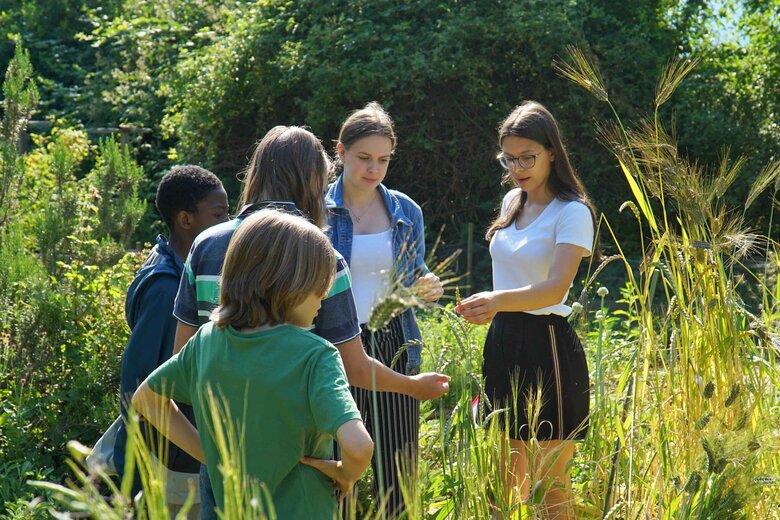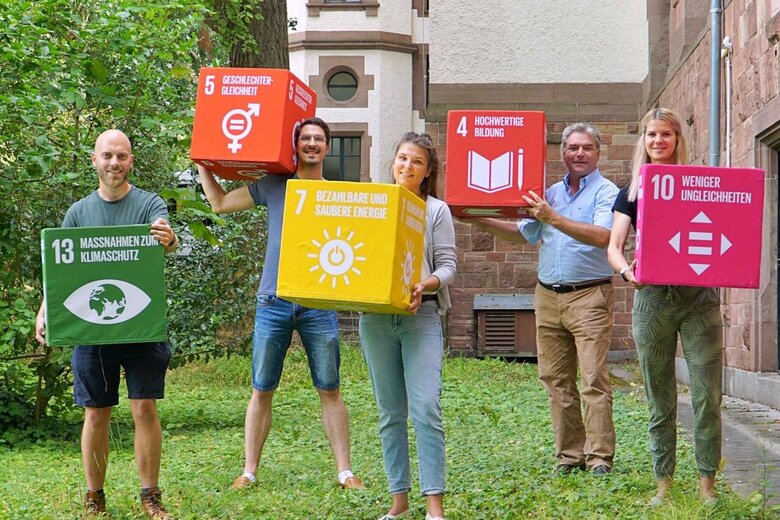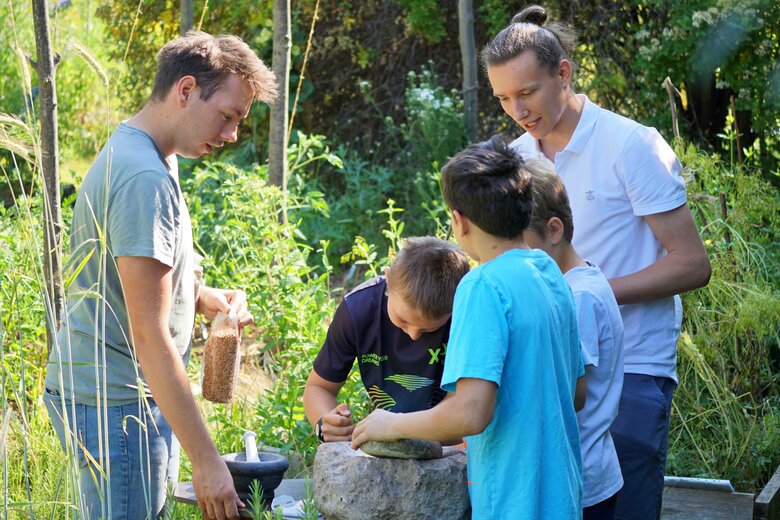Learning does not only take place in the lecture theatre: Museums, archives, theatres, companies and extracurricular educational institutions open up diverse perspectives and practical experiences for students. We consciously use these places to make knowledge tangible, to broaden the perspective and to introduce our students to learning environments at an early stage that they can later use for their own teaching.
For thirty years, our eco-garden has been a place of research and learning with a focus on the professionalisation of teachers for outdoor education. Here, student teachers pass on their knowledge about biodiversity and sustainability to their pupils as committed multipliers. And they do so very successfully: since 2015, the eco-garden under the direction of Prof. Dr Lissy Jäkel has been a UNESCO-awarded learning centre for Education for Sustainable Development and was awarded again in 2017/2018 and the following year as well as in 2022/2023.
dactylos "Sustainable development" (2023, p. 14-18)
In the joint interlinking module of our university and Heidelberg University, students not only develop their understanding of education for sustainable development, but also test this directly in lessons at partner schools. Accompanied by lecturers, fellow students and teachers, they interactively develop concepts on sustainability and climate change, implement them in team teaching and reflect on their experiences. This creates a unique learning space in which theory and practice intertwine and creative ideas for sustainable education emerge.
How can university lecturers empower students in their courses to contribute to responsibly shaping a more sustainable future? This question was the focus of a project led by Prof. Dr Alexander Siegmund: since then, lecturers have been supported in a Germany-wide training programme to teach students the increasingly important topic of sustainable development both by explicitly addressing it and through their individual approach.
dactylos "Sustainable development" (2023, p. 14-18)
The major challenges of our time - from climate change to global justice - make it clear how central sustainability is to our future. Education plays a key role here, as it enables people to act responsibly and actively shape change. Geographer Dr Nicole Aeschbach and environmental physicist Prof Dr Werner Aeschbach have developed an additional qualification in which student teachers acquire valuable knowledge and practical skills to effectively anchor Education for Sustainable Development in schools and lessons.


